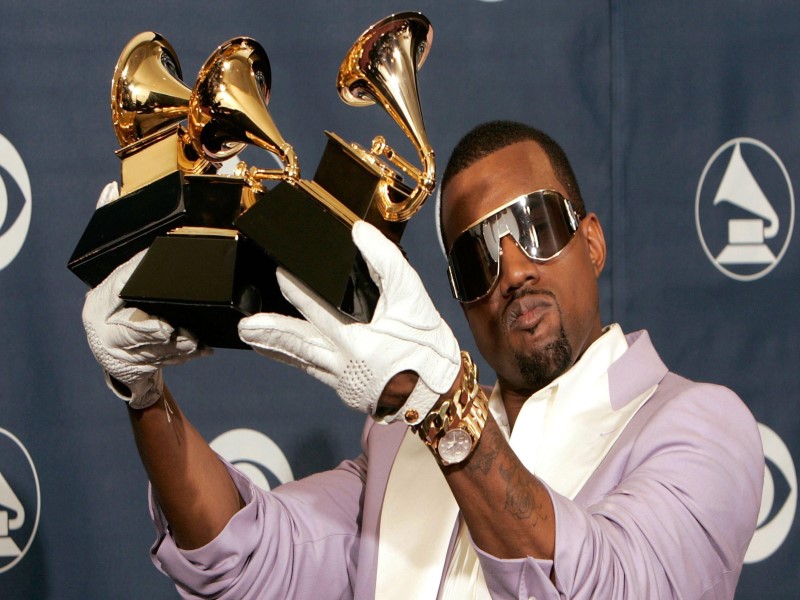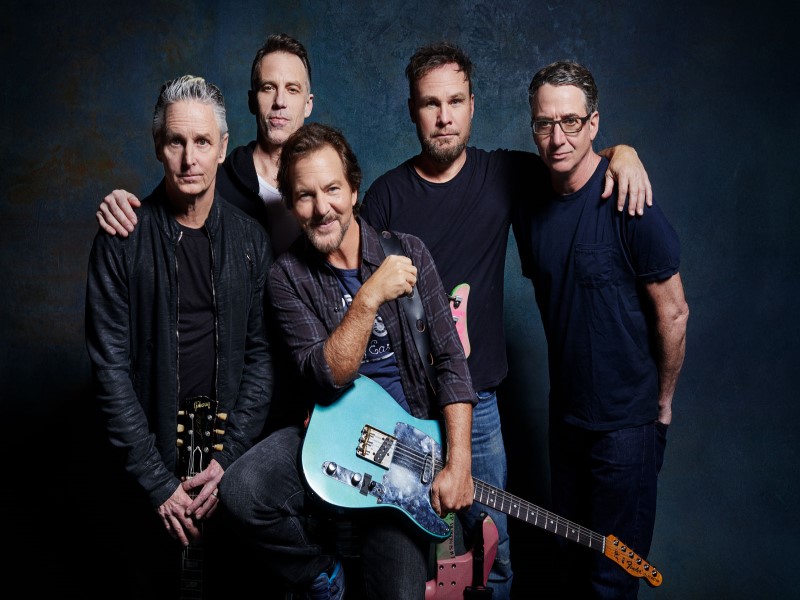Grammy Awards
Arguably the biggest award ceremony in the music community, the Grammy Awards take place annually in cities across America with the iconic golden gramophone, which the awards are named after, handed out to recognise outstanding talent in the music industry of the United States.
The Grammy Awards are considered one of the four major annual American entertainment awards, along with the Academy Awards for film, the Emmy Awards for television and the Tony Awards for theatre and Broadway. The Grammys are also the first of the Big Three networks’ major music awards, alongside the Billboard Music Awards in Summer, and the American Music Awards in Fall.
History of the Grammys and Christian Music
Contemporary Christian music made its first appearance in the Grammy Awards ceremony in the year of 1991. This year saw the creation of three new award categories for Christian music, these being Best Pop Gospel Album, Best Rock Gospel Album and Best Southern, Country or Bluegrass Gospel Album.
These three award categories encompassed the sole presence of Christian Music within the Grammy Awards for many years and went through numerous title changes over time. For example, the Grammy Award for Best Southern, Country or Bluegrass Gospel Album was originally called the Best Southern Gospel Album and was notable for being dominated by the gospel singer Bill Gaither. Gaither holds the honour of most category wins, with a total of four: two from his work in the Gaither Vocal Band, and another two in combination with his wife, Gloria.
The Grammy Award for Best Pop Gospel Album has also seen a change in name. Originally called the Best Pop Gospel Album, the award was retitled as Best Pop/Contemporary Gospel Album in 1993. Additionally, the criteria for the category was revised to include albums with “at least a 51% playing time of newly recorded pop/contemporary gospel vocal tracks.”
These three award categories, Best Pop Gospel Album, Best Rock Gospel Album and Best Southern, Country or Bluegrass Gospel Album were all discontinued in 2012, following a major overhaul in the Grammy awards’ structure. These three categories were combined into a singular category which is still awarded today, known as the Grammy Award for Best Contemporary Christian Music Album.
This change was finalised in 2014 by the Recording Academy in an attempt to “clarify the criteria and represent the current culture and creative DNA of the Gospel and Contemporary Christian Music communities, and better reflect the diversity and authenticity of today’s Gospel Music Industry”.
The winner of the most recent Grammy Award for Best Contemporary Christian Music Album is Kanye West for his album, ‘Jesus is King’. It can be said without a shadow of doubt that the majority of Christian musicians are aiming to reach the same level of success as this highly accomplished artist, and win the Grammy Award for Best Contemporary Christian MusicAlbum.

Image Courtesy of: Kevin Winter/Getty Images
The History of The Grammy Awards Ceremony
The Grammys can trace their origin back to the Hollywood Walk of Fame project in the 1950s. For the project, recording executives on the Walk of Fame committee compiled a list of significant recording industry members who they thought might qualify for a Walk of Fame star. As they assessed their options, they realized that many leading people in the industry would not earn a star on Hollywood Boulevard.
They decided to rectify this by creating an awards ceremony, similar to the Oscars and the Emmys, to recognise the achievements of those working in the record industry. The first dilemma that faced them was what to name the award.
One working title was the ‘Eddie’, to honour Thomas Edison, the inventor of the phonograph. Eventually, the name was chosen after a mail-in contest in which approximately 300 contestants submitted the name ‘Grammy’.
With this decided upon, the first Grammy Awards ceremony was held on May 4, 1959, to honour the musical accomplishments of performers for the year 1958. The award ceremony was held simultaneously at, the Beverly Hilton Hotel in Beverly Hills California, and the Park Sheraton Hotel in New York City, New York, with 28 Grammys awarded.
The number of awards grew throughout the years, at one time reaching over 100, and fluctuated as the awards evolved, with categories added and removed. The second Grammy Awards, also held in 1959, was the first ceremony to be televised and was aired later in the year. The ceremonies were not aired live until the 13th Annual Grammy Awards in 1971.
History of the Grammys – Televised
The first Grammy Award telecast took place on the night of November 29, 1959, as an episode of the NBC anthology series NBC Sunday Showcase, which was normally devoted to plays, original TV dramas and variety shows.
This was unique to the first ceremony and did not occur again, however a similar style program was involved later in the televised history or the Grammys. Before the first live Grammys telecast in 1971 on ABC, a series of filmed annual specials in the 1960s called ‘The Best on Record’ was broadcast on NBC.
Until 1971, awards ceremonies were held in both New York and Los Angeles, with winners accepting at one of the two venues. Television producer Pierre Cossette bought the rights to broadcast the ceremony from the National Academy of Recording Arts and Sciences and organized the first live telecast. However, when CBS bought the rights in 1973 they decided against the original bi-coastal format, changing the nature of the ceremony for the coming years.
This shift in location and network was what lead to the American Music Awards being created for the ABC by the late Dick Clark. These awards, known as the AMA’s evolved into one of the Grammy’s prime competitors as the years went on.
In 2011, The Recording Academy announced that it had brokered a new deal with CBS to keep the awards show on the network for another 10 years. As part of the new contract, the network would also air a “nominations concert” special in the last week of November, where nominations would be released during a special exclusive to CBS, rather than at a traditional early-morning press conference to a multi-network press pool.
This arrangement was ended after the 2016 concert due to low ratings and criticism about the format, and, as of 2017, the nominations have been revealed in a roundtable conversation with Recording Academy representatives during CBS This Morning.
In 2016, the Grammys became the first awards show to be broadcast live in all US territories, and for decades, alongside the Academy Awards, Primetime Emmy Awards and Tony Awards, the shows have aired live in over 150 countries worldwide.
Nomination Process
The current method for selecting a Grammy nominee begins with the members of the National Academy of Recording Arts and Sciences (NARAS) selecting nominations.

Entries are made online, and a physical copy of the work is sent to NARAS. When a work is entered, review sessions are held that involve over 150 recording industry experts, to determine that the nominees work has been entered into the correct category.
The resulting lists of eligible entries are then circulated to voting members, each who may vote to nominate in general fields such as Record of the Year or Album of the Year, and up to nine out of 30 other fields on their ballots, the majority of which are genre specific.
The five recordings that earn the most votes in each category become the nominees, while in some categories (craft and specialized categories), review committees determine the final five nominees. There may be over five nominees if a tie occurs in the nomination process.
Although members of the Academy of Motion Picture Arts and Sciences are generally invited to screenings or sent DVDs of films nominated for Oscars, NARAS members do not receive nominated recordings, but instead receive access to a private online listening service.
Voting Process
After nominees have been determined, final voting ballots are sent to NARAS voting members, who may then vote in the general fields, and in up to nine of the 30 fields. Members are encouraged, but not required, to vote only in their fields of expertise. Ballots are then counted secretly by the independent accounting firm Deloitte.
After vote counting, winners are announced at the Grammy Awards ceremony with the recording that received the most votes in a category winning. Winners are presented with a Grammy Award; those who do not win receive a medal for their nomination. It is possible to have a tie; in which case the two or more nominees are considered winners.
In both voting rounds, academy members are required to vote solely based upon quality, without consideration for sales, chart performance, personal friendships, regional preferences or company loyalty. Gifts may not be accepted. Members are urged to vote in a manner that preserves the integrity of the academy and their member community. Of course, this is not really an enforceable rule and has led to a large amount of controversy and criticism.
The Failures of the Grammy Awards
Commercialism
The Grammy awards have gone through many controversies and receive a large deal of criticism over their position in the music world. One key aspect of this is the commercial nature of the awards ceremony, which some artists believe taints the music industry as a whole.
This criticism, usually only discussed in private industry circles, was brought to light in 1996. Pearl Jam won a Grammy that year for the Best Hard Rock Performance, and the band’s lead singer Eddie Vedder commented on stage: “I don’t know what this means. I don’t think it means anything.”

This idea was brought up again on stage in 2008 when Glen Hansard, leader of the Irish rock group The Frames, stated that the Grammys represent something outside of the real world of music “that’s fully industry based”. He said he was not that interested in attending that year’s ceremony, even though he had been nominated for two awards.
This sentiment was shared by Maynard James Keenan, lead singer of progressive rock band Tool, who did not attend the Grammy Awards ceremony to receive one of their awards, explaining that “the Grammys are nothing more than some gigantic promotional machine for the music industry. They cater to a low intellect, and they feed the masses. They don’t honour the arts or the artist for what he created. It’s the music business celebrating itself. That’s basically what it’s all about.”
These ideas shared by musicians within the industry are corroborated by trends seen in the Awards themselves. The Grammys have been consistently criticized for generally awarding, or nominating, more commercially successful albums rather than critically successful ones.
In 1991, Sinead O’Connor became the first musician to refuse a Grammy, boycotting the ceremony after being nominated for Record of the Year, Best Female Pop Vocal Performance and Grammy Award for Best Alternative Music Performance. O’Connor would go on to win the latter award. She said her reasoning came from the Grammys’ extreme commercialism; a sentiment shared by many of her peers.
Racial Injustice
The Grammys have also been accused of being unfavourable to black recording artists, facing backlash from various artists in their community and the music industry as a whole.
Again, this was brought into the spotlight by an artist, when, in 2017, Canadian artist Drake accused the awards of seeing him only as a rapper and not as a pop-music artist due to his previous work and heritage. Specifically, he criticized the snubbing of “One Dance” for the Record of the Year award and the nomination of “Hotline Bling” for Best Rap Song and Best Rap/Sung Performance, despite it not being a rap song.

Drake did not attend the 2017 awards ceremony when he was nominated. He had a performance in Manchester, England on February 12, 2017, the same night as the ceremony. This sentiment was shared by Frank Ocean who was vocal about boycotting the same Grammy Awards and did not submit his highly acclaimed album Blonde for award consideration as a protest.
The Grammys were also criticized after the 59th Annual Grammy Awards when Adele’s 25 won Album of the Year, beating out Beyoncé’s album Lemonade which many music publications believed should have won the award.
Steve Knopper of Rolling Stone magazine believed that she lost due to the Grammy voters being all white males and for her pro-black performance during the Super Bowl 50 halftime show. USA Today also criticized Beyoncé’s loss stating that “Black artists have struggled to win album of the year”. The publication also claimed 25 won only due to the album’s record-breaking sales, believing that Lemonade had enjoyed far greater cultural significance and impact in 2016.
Adele also expressed that Lemonade should have won over her for Album of the Year, stating in her acceptance speech:

“I can’t possibly accept this award. And I’m very humbled and I’m very grateful and gracious. But my artist of my life is Beyoncé. And this album to me, the Lemonade album, is just so monumental. Beyoncé, it’s so monumental. And so well thought out, and so beautiful and soul-baring and we all got to see another side to you that you don’t always let us see. And we appreciate that. And all us artists here adore you. You are our light.”
In 2019, for the first time, a rap artist won major award nominations outside the rap categories when Childish Gambino won the first Song and Record of the Year awards ever for a rap song. This, despite being progress in the fair treatment of African American artists in the music industry, was also argued as a case of tokenism.
The song which won ‘This is America’, was a highly political song which had been received with incredibly positive acclaim by the music industry, however, it in itself was a criticism of the commercialisation and racist core of many American institutions, making it almost ironic that it won, considering the Grammys’ track record.
Hispanic and Latino Americans, the largest America minority, also claim to be discriminated against in the award process. Under-represented at the Grammy Awards, Latin music is prone to being shifted to the categories of the Latin Grammy Awards held by the Latin Recording Academy in Las Vegas, making them effectively ineligible for any of the big awards in the US’ ceremony unless they have a large mainstream following.
The Grammy Awards Today
With such controversy surrounding the awards, their nomination and final selection process and the Recording Academy as a whole, the future of the Grammy awards is uncertain. Of course, the awards will not cease to be given out every year, however their reputation and relevancy within the music industry has definitely been cast in doubt.
Despite this, for the majority of musicians, the Grammy awards still stand as a goal to aim for in their careers. Hopefully as they evolve and develop in the future the Grammy Awards will redefine themselves for the better, and once again take their place as one of the most sought-after accolades in the music industry.
